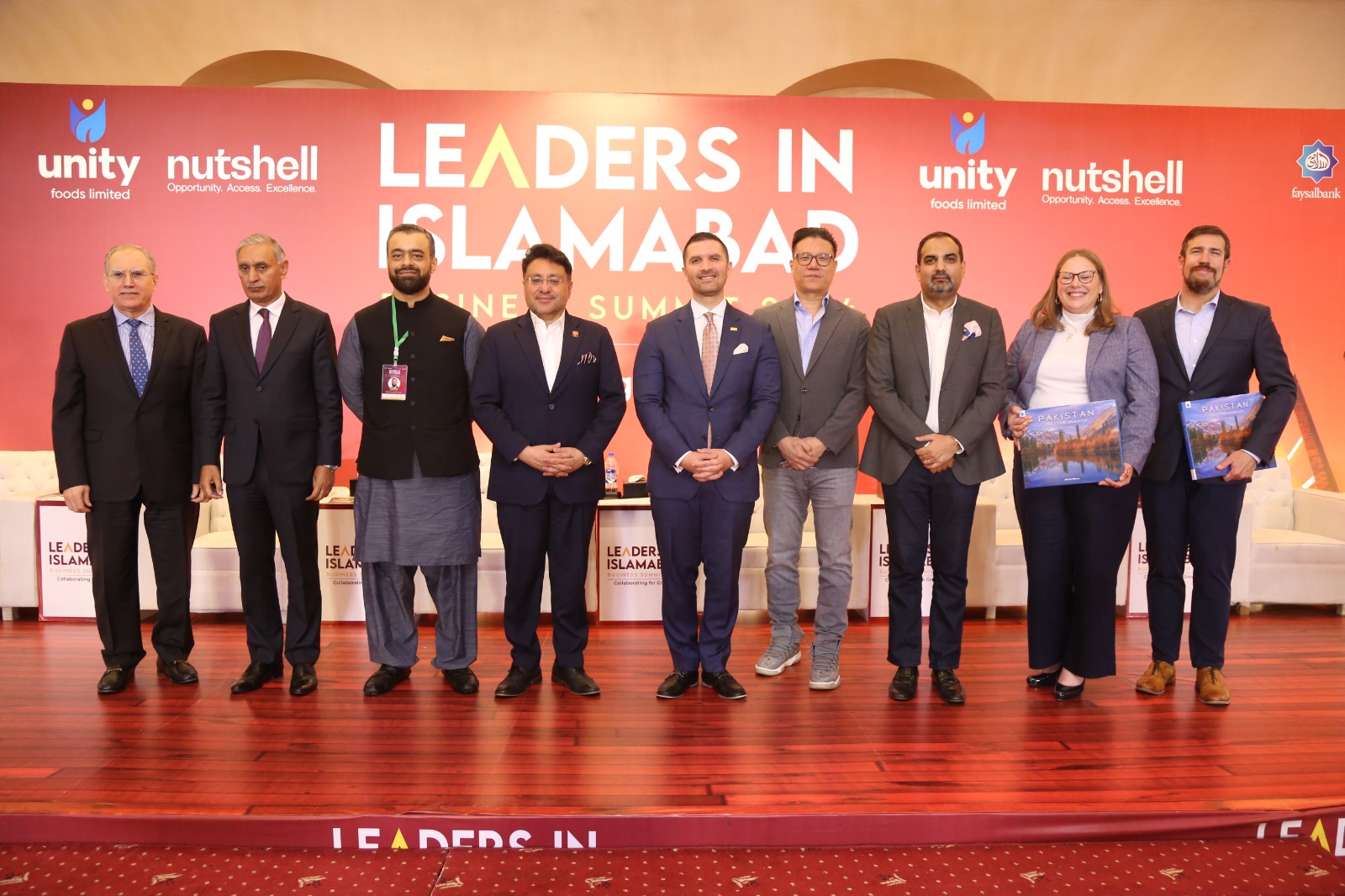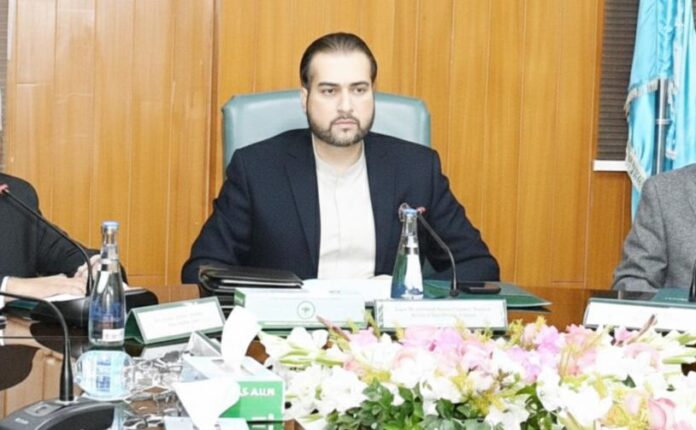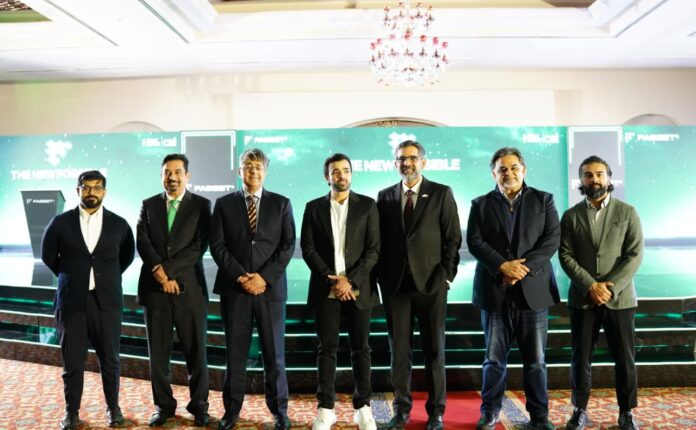Islamabad: A vibrant atmosphere of collaboration and innovation continued to flourish on the second day of the highly anticipated 7th LEADERS IN ISLAMABAD BUSINESS SUMMIT (LIIBS). Held at a local hotel in Islamabad, the event brought together visionary leaders, entrepreneurs and stakeholders to drive economic development both regionally and globally.
The 7th edition of LIIBS is jointly organized by Nutshell Group and Unity Foods Limited in collaboration with OICCI (Overseas Investors Chamber of Commerce and Industry), with Faysal Bank Limited.
Air Chief Marshal Sohail Aman (Rtd), Chief of the Pakistan Air Staff (2015-2018), thanked the participants and delegates for contributing to the success of the event. “The private sector should take responsibility. This call to action highlights the key role that private enterprise and business can play in driving economic growth, job creation and innovation. Collaboration between government and the private sector can unlock new opportunities, attract investment and address key challenges facing a country’s economy. Today the world has changed. It’s not about geopolitics, it’s about geoeconomics, and if economics is key, then the private sector is the one to take responsibility. Policy consistency is absolutely essential.”
He further stated: “It is essential for us to rethink the dynamics between the interaction between governments and trade commitments. This involves carefully examining and potentially restructuring the relationships and cooperation that exist between governments and businesses. Such a rethinking is key to strengthening cooperation, fostering mutual understanding and fostering sustainable economic growth.
The day started with an inspiring dialogue from Forging the Future. The panel consisted of Konstantin Makarov, Senior Director, StartLink, Middle East and Africa; strategic advisor, global markets, Van Tuyl Companies & Perry Ellis International; Arshad Saeed Hussain, Managing Director, Oxford University Press, Pakistan; Dr. Zeeshan Bin Ishtiaque, CEO, Shifa International Hospital; and Ali Khizar, Head of Research, Business Recorder.
Commenting on the importance of a sustainable learning framework in today’s connected business environment, Arshad said, “massive learning modules for targeted learning, gamification for fun learning activities and blended learning where learning is not limited to digital or face-to-face learning. educational resources, can be a good combination to meet the educational needs of our future students.”
Konstantin shared his expertise: “There are 5 key trends in emerging markets: digital transformation, urbanization and infrastructure development, transportation solutions, demographic shifts and a shift in global supply chains.”
Complexity in the future can be simplified by working together to achieve a common goal. We need to work on how we deal with policy making, rules and regulations at the national level.”
On the challenges facing Pakistan, Ali said, “One of our macro problems is that revenue is low and governance is poor, so we can address that by digitizing and documenting the economy because that can help solve the problem. tax problem. Currently, Pakistan finds itself in a situation where it needs to deal with the IMF. However, they must proactively implement measures to prevent such circumstances from recurring in the future.”
One of the highlights of the day was a panel discussion on Leadership & Strategy in the Age of Disruption, moderated by Saquib Ahmad, Managing Director, SAP Pakistan, Iraq, Bahrain and Afghanistan. The distinguished panelists shared their insights on how leadership in organizations must deal with the changing dynamics of the modern world.
Dr. Amjad Waheed, CEO, NBP Funds; Zarrar Hasham Khan, Group Business Solutions Director, PTCL Group participated in this discussion.
Dr. Amjad, a dedicated visionary and corporate leader, commented on the need to disrupt thinking: “I see the upheaval we’re experiencing beyond just technological advancements; it’s a thought disorder. This shift in perspective is deep and far-reaching, affecting how we perceive the world, make decisions, and interact with one another. It is not only about adapting to new technologies, but also about adopting new ways of thinking and approaching problems. This disruption in thinking has significant implications for how we navigate our personal and professional lives, as well as how we shape the future of our society.”
Successful companies are those where means of communication are readily available. While the advent of cloud services and artificial intelligence is encouraging, Pakistan will need significant changes in developing and delivering effective systems.
Saquib, summed up the talk with his perspective on the need to own change. He said: “If we want to make an impact, we have to make a difference ourselves. This is the disruption this country needs. That’s the impact we all need. We are the ones who have to take responsibility and have influence.”
Sajjeed Aslam, Partner, Spectreco LLC, USA, in his speech addressing issues related to climate, foreign direct investment and economic growth, asked a crucial question: “Who will take the key responsibility for managing change? Across civilizations there is a common effort to identify those few wise individuals who will initiate action. While there may be a lot of discussion, the real problem lies in the implementation phase.”
Sajjeed further elaborated, “Moving from zero to one requires a lot of effort, courage and motivation as it is the hardest journey. It’s not one to nine, it’s zero to one, which takes a lot of effort and a lot of people to work together.”
Emerging issues were presented in the following session, which included a conversation between Moustafa H. Moharram, Chairman of Moharram & Partners, and Usman Yousuf, Director of Nutshell Communications regarding the BIG Rethink for Collaboration.
Day 2 of LIIBS 2024 -Uniting Visionaries for Collaborative Growth






